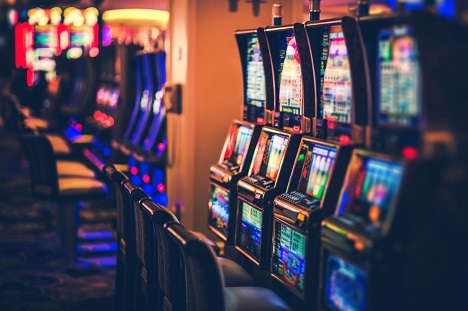One of my dad’s biggest sacrifices during the pandemic has been not going to the casino.
He loves those trips.
He even has a separate bank account that he keeps his “casino money” in.
He automatically deposits a small portion of his pension into his casino account every month. He pulls money out of that account when he goes to the casino, and anything he wins gets deposited back into the account after he has visited.
A couple of months ago, he mentioned to me that since COVID-19 hit, the balance in his casino account keeps going up.
It seems that not going to the casino is actually a positive thing for his bank balance!
What floored me is that, somehow, he seemed surprised by that fact…
As you may know, every single game is structured so that the casino has an edge.
In blackjack, ties go to the house.
In roulette, there is an extra space that puts the odds in favor of the casino.
In slots, every single game ultimately results in the casino winning over time.
I’ve politely tried to explain to my dad that it is a mathematical certainty that, over time, he will lose money at the casino.
His response has always been the same. He tells me that a trip to the casino is exactly like putting money into the stock market.
But he is wrong…
In the Stock Market, We Are the House
Stay at the casino long enough, and you are certain to lose.
The stock market is exactly the opposite. The more time we spend in the market, the more likely we are to win.
Historical data makes that clear.
The investment firm Dimensional Fund Advisors studied stock market performance from 1926 to 2020.
The study looked at the odds of an investor having either positive or negative returns based on how long they were invested in the S&P 500.
The results are conclusive…
The longer you are invested, the greater your chances of success.
Anyone in the market for the long term over the course of this study had virtually no chance of losing money.
Even daily, the stock market odds are in your favor.
I should also point out that to lose money over five- or 10-year periods, you would’ve had to have incredibly bad timing.
You would have needed to invest in the S&P 500 only at the worst possible times, like the 1929 peak or the 2000 top of the dot-com bubble.
Success, meanwhile, requires only a few things:
- Diversifying, or getting wide exposure to great companies in different industries
- Not being greedy or going all-in at market peaks
- Not getting scared at market bottoms like the one last spring or cashing out at the worst possible moment
- Being patient and letting time in the market do all the hard work for you.
When having a moment of doubt, like many of us did last spring, I like to look at the chart of the S&P 500 going back more than 100 years.
All that chart does is keep climbing up and up.
Over that long period, even terrible crashes look like blips on the radar.
Investing in the stock market isn’t gambling.
The game is rigged in our favor.
Good investing,
Jody

